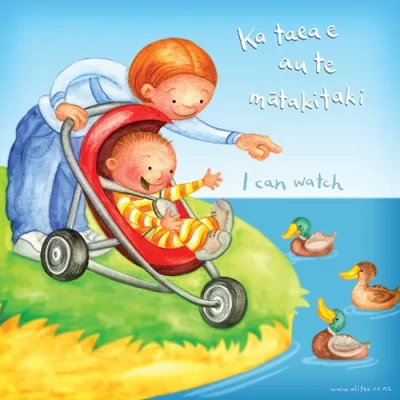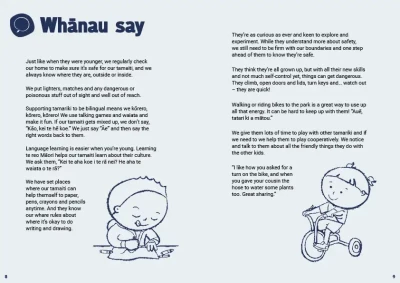
Parallel play
Parallel play occurs when a child watches another child and sometimes copies movements and behaviours. It comes before play with other children. It helps if parents can support this stage.
At this stage, children are becoming more interested in other children. At first, they will play alongside someone else, which is called parallel play. They will usually play alone during parallel play, but they will be watching the other child and sometimes copy the movements or behaviours. They are not yet ready to interact and play with another child.
This is where a toddler begins to learn about becoming a co-operative play partner. Some children are quicker at learning this than others, so it really helps when their parents understand this stage and support them when they need it.
Ask the whānau:
- What opportunities does your toddler have to play alongside other young children?
- What have you noticed about their play?
- Sometimes in a group-play situation like at a playgroup, ECE or kōhanga reo , children will be sitting in the sandpit or at a table doing similar things, but not really interacting with each other. Have you seen this happen with your child?
Now and then, they might offer a toy to another child, but sharing doesn’t come easily to them at this stage. Watch them next time they’re in a group with other children and see how they are playing.
Playing with others
On page 9 of Whakatipu Te Kōhuri 3, whānau say, ‘We give them lots of time to play with other tamariki and if we need to we help them to play cooperatively. We notice and talk to them about all the friendly things they do with the other kids.'
- If there are three kids and one bike — what strategies could you use to keep the peace?
Sharing and taking turns
Don’t expect them to share easily, but keep encouraging them to do so. Take notice when they do share and praise them for it.
In Whakatipu Te Kōhuri 3, on page 9, whānau say, “I like how you asked for a turn on the bike, and when you gave your cousin the hose to water some plants too. Great sharing.”
Sometimes it’s easier to talk about having a turn rather than sharing, because sharing sometimes means ‘giving something away’ (like half my banana), which won’t come back. In contrast, turn taking means their ‘turn’ is likely to come back around again.
- What activities are they most interested in lately?
- What sorts of games or activities do you think would suit them at this stage, where they like to watch and copy others but have difficulty sharing?
- How could your child spend time with other children – at home or at playgroups, at kōhanga reo or ECE?
Try an activity
Water play outdoors – Tākaro wai ki te taiao
Playing with and in water is a great way for tamariki to participate safely in an activity that can be enjoyed in a variety of places by a range of whānau members of different ages. An easy activity that can encourage tu













